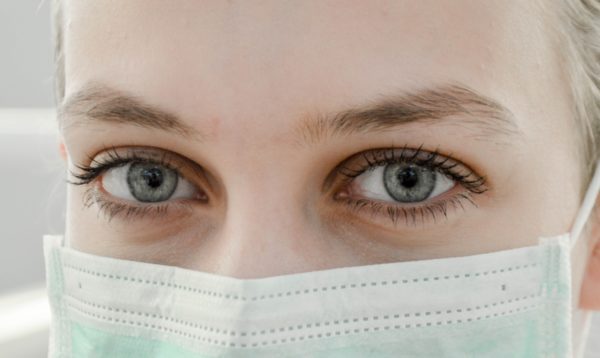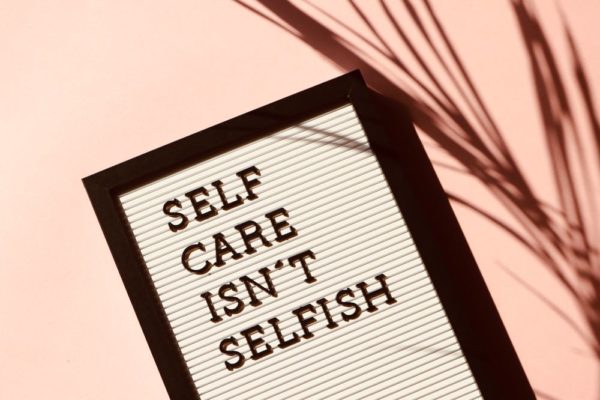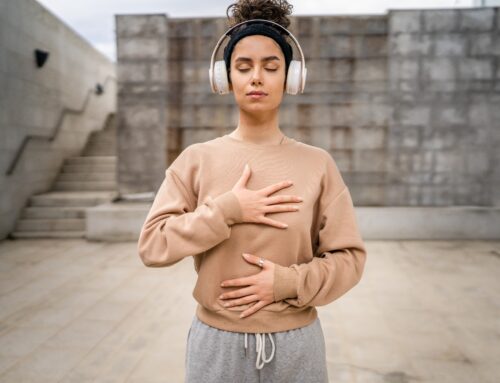Healthcare workers who are helping millions of COVID-19 patients appear to be fearless and psychologically healthy. However, every single day, millions of health care workers around the world are pondering whether to quit their job or to fulfill their professional obligation. It is because this pandemic puts them in an extraordinary situation, which makes them feel like they are in a warzone day after day.
At Lyf in an effort to honor, support and thank our healthcare workers we are currently offering our Lyf Support service entirely free. Lyf Support connects people to our Mental Health Experts who consist of certified psychologists that are ready to discuss anything they might be going through and are available 24/7.
Our healthcare workers are physically exhausted, and they have no time to acknowledge their negative emotions. Likewise, doctors, nurses, and all the staff working in the hospitals are directly exposed to patients, scared to be infected, afraid to go home because they may put their family at risk. Most frightening is the fact that countless health care workers worldwide have already died while catching the virus in the line of duty. One of the biggest challenges that the health care workers are facing right now is the shortage of personal protective equipment (PPE). These incidents are presently experienced by all health care workers globally.
The most emotional and psychological challenge that the health care workers are experiencing is they are not just required to provide medical care, but they are also morally bound to give emotional support to those who are dying. Daily, they witness the massive amounts of death. They absorb the grief of the family members who lost their loved ones while holding back their tears.

The pandemic is visible, but the chronic stress and mental health crisis that the health care workers are invisible. Mental health concerns of the frontliners may be the next pandemic that we need to consider now. Health care workers’ overall well-being is at significant risk too. They have less and even no time to take care of their physical and mental health. These circumstances make them susceptible to unhealthy coping strategies and mental illness, including:
- Fatigue
- Insomnia
- Burnout
- Vicarious Trauma
- Compassion fatigue
- Sleeping Pill Addiction
- Alcohol Abuse
- Drug Abuse
- Binge Eating Disorder
- Anxiety Disorders
- Depressive Disorders
- Suicidal Thoughts
- Post-Traumatic Stress Disorder
Providing quick and easy stress management techniques for all health care workers is essential to help them cope with the death of their patients and be mentally healthy while bravely battling this COVID-19 pandemic.
Mental Health Care Tips for Health Care Workers:
- GROUP COUNSELING
It is a form of counseling where a set of individuals with similar concerns meet as a group with a therapist or facilitator. They will talk about their struggles, learn from their shared experiences, and find solutions about their everyday problems. It is psychologically beneficial for health care workers if they will have at least 30-60 minutes of group counseling at least once a week. It can be their way of venting their most distressing experiences with a group of persons who has the same situation as them. Mostly, it will provide them emotional and psychological support promptly.
- WORRY JOURNAL
As a health care worker, some of you decided to self-isolate, and there is no guarantee that you can always call anyone for emotional support. It is inevitable to have flashbacks about the distressing events you are witnessing at the hospital when you are alone. You can overcome your intrusive thoughts alone using a worry journal. You only need a notebook where you will write down all your fears, worries, and traumatic experiences. Alternatively, you can create a beat in the Lyf app to serve as your online worry journal. It will help you to calm your mind and get rid of your destructive thoughts. The best time to write in your worry journal is whenever you are alone and suddenly experience upsetting thoughts.

- 15-MINUTE SELF-CARE
As soon as you get home, make it a habit to dedicate at least 15-minute of your time to practice self-care. Do whatever makes you feel relaxed. Your focus is to devote time to express how much you love yourself. It can be a relaxing bath, drinking your favorite beverage while reading your favorite book, or watching an inspirational video. You can also sit in your garden and appreciate the beauty of nature. You can look through the window and do stargazing.

- 5-MINUTE GUIDED MINDFULNESS MEDITATION
Listening to guided mindfulness meditation while lying on your bed before you fall asleep is a quick way to reduce your negative thoughts and emotions. It will also help you to focus on the present moment, reduce your stress level, and develop a positive outlook in life out of your stressful and overwhelming situation. Using the Calm app is a convenient way to do a guided meditation.

- STRONG SUPPORT SYSTEM.
Ensure to connect with your loved ones. It can be face-to-face or through a video call. Having a healthy and funny conversation with them will boost your positive mood, and it will increase your happy hormones. You may also talk about your negative emotions and cry. Do not suppress your sadness because it is detrimental to your mental health. The choice is yours, whether you want to laugh or cry with your support system. But one thing is for sure; laughing and crying are both beneficial for our mental health.

No one knows when this COVID-19 pandemic will end. Thus, we must prioritize the mental health of all our health care workers and frontliners. If we do not take immediate action to help them be mentally healthy, there is a high risk that the number of health care workers will continue to deplete. If we allow this to happen, the health care system could eventually collapse regardless of the country’s economic status.
To defeat COVID-19 all nations must be united, and we will win this battle in time.


Leave A Comment